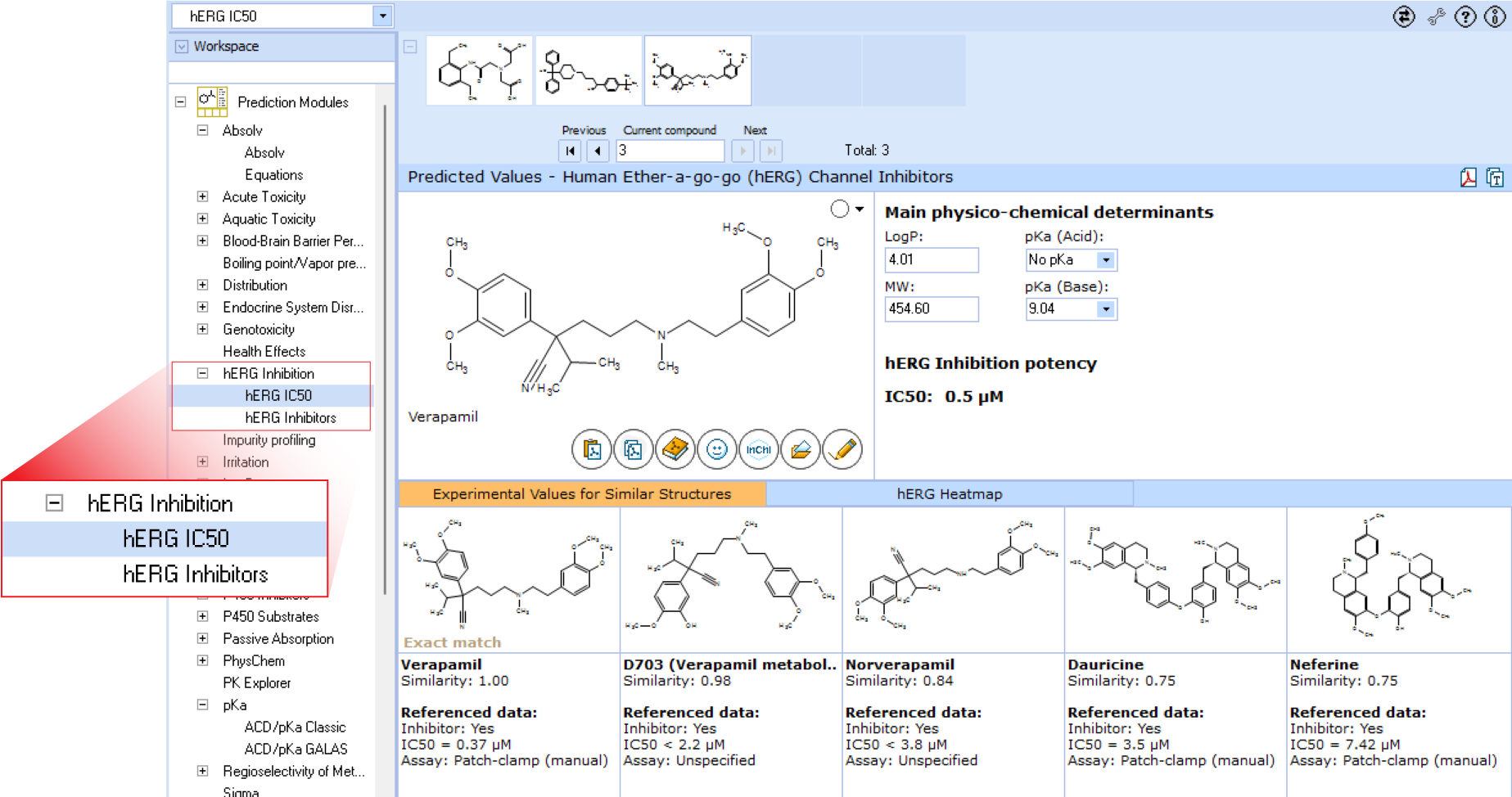Version 2023 introduces improvements in the hERG Inhibition prediction module, better accuracy of underlying physicochemical property predictions in Tox Suite, and more. Read below for details, and contact us for help upgrading your software.
Access the two hERG inhibition models more easily from the file menu and benefit from better segregated reference data for similar structures.
- hERG Inhibitors is the GALAS model that provides probability of inhibition at 10 μM threshold, Reliability Index, and a list of 5 most similar structures from the training library
- hERG IC50 is the Physicochemical model that offers editable physicochemical input parameters, an estimated IC50 value, and a heatmap that allows you to explore the logP and pKa dependencies of hERG inhibition
Refactoring of these models also means that the five similar structures displayed from the training library are specific to each model and the information displayed differs slightly:
- hERG Inhibitors (GALAS): similar structures are selected by a dynamic similarity algorithm. Information displayed is the binary classification Inhibitor/Non-inhibitor and associated reference.
- hERG IC50 (PhysChem Suite): similar structures are selected by chemical similarity (Tanimoto coefficient on MACCS-II fingerprints). The software displays the binary classification Inhibitor/Non-inhibitor and additional quantitative information from the reference— measured IC50 value, and the experimental assay used.
Improvements to the pKa Classic algorithm, which also impact logD predictions, mean you can expect greater accuracy and expanded chemical space coverage for these calculations in the hERG IC50 module.
Create Batch PDF Reports
You can now generate batch PDF reports from each module in Tox Suite, for all molecules in your active project. Previously, batch reports were only available from the Spreadsheet, including the values available there.

Unicode Support
You can now store textual data, written in your local language, in the spreadsheet.
ACD/Labs’ development team is eager to collaborate with organizations to improve predictions for novel compounds. Do you have accurately measured experimental values for the predictions we support? Contact us to discuss how we may work together.


